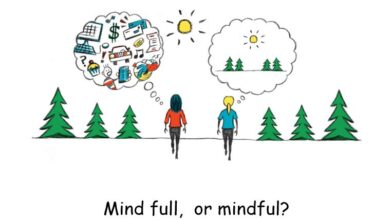Body Image: Understanding, Accepting, and Loving Yourself

In today’s world, conversations surrounding body image are more important than ever. We are constantly bombarded with images of “ideal” bodies through media, advertisements, and social platforms, often making it difficult to feel content with our own bodies. But what is body image, why does it matter, and how can we foster a healthier relationship with our appearance?
This blog explores the complexity of body image, the challenges many face in developing a positive perception of themselves, and how we can move toward body acceptance and self-love.
What is Body Image?
Body image refers to the way you perceive your physical appearance, how you feel about the way you look, and how you believe others see you. It encompasses:
- Perceptual Body Image: How you visualize your body.
- Affective Body Image: The emotions you experience about your body’s appearance.
- Cognitive Body Image: The thoughts and beliefs you have about your body.
- Behavioral Body Image: The actions you take in response to how you feel about your body, such as avoiding mirrors or certain social situations.
Our body image can be influenced by a variety of factors, including cultural ideals, family attitudes, peer pressure, and the media. It can be positive (when we are satisfied with our body) or negative (when we are unhappy with or ashamed of our body). Unfortunately, in our image-obsessed culture, many people struggle with negative body image, which can impact their mental, emotional, and physical well-being.
The Pressure of Unrealistic Standards
One of the biggest contributors to negative body image is the unrealistic standards set by society. From social media influencers to fashion advertisements, we are constantly shown narrow representations of beauty—thin, toned, flawless skin, perfectly styled hair. These standards are often impossible to achieve and can lead to feelings of inadequacy.
The rise of image-editing apps and filters has exacerbated this issue. Many photos we see online are heavily edited, presenting an ideal that even the people in the photos don’t look like in real life. This can make it easy to compare ourselves to others, leading to unhealthy self-criticism.
The Impact of Negative Body Image
Negative body image can affect every aspect of life. It can lead to feelings of low self-esteem, depression, anxiety, and isolation. It may also result in unhealthy behaviors, such as extreme dieting, over-exercising, or eating disorders. The obsession with achieving a “perfect” body can overshadow the enjoyment of life’s experiences and erode self-worth.
For some people, negative body image can be deeply rooted in traumatic experiences, bullying, or negative comments from family members or peers. These experiences can shape how individuals see themselves and their bodies, sometimes leading to long-term struggles with self-acceptance.
Promoting a Healthy Body Image
Cultivating a healthy body image is essential for mental and emotional well-being. It’s about learning to appreciate, respect, and care for your body, regardless of its shape or size. Here are some steps to promote a more positive relationship with your body:
1. Focus on What Your Body Can Do, Not Just How It Looks
Instead of fixating on your body’s appearance, try to appreciate all the amazing things it allows you to do. Whether it’s walking, dancing, laughing, or hugging a loved one, your body enables you to experience life. Shifting your focus from aesthetics to function can help you cultivate a greater appreciation for your body.
2. Challenge Negative Thoughts
When negative thoughts about your body arise, challenge them. Ask yourself whether these thoughts are true or whether they are a result of societal pressure. Replace them with positive affirmations. For example, instead of thinking “I hate my stomach,” try saying, “I appreciate my body for nourishing me and keeping me alive.”
3. Surround Yourself with Body-Positive Media
Limit exposure to media that promotes unrealistic beauty standards. Instead, seek out content that encourages body positivity and diversity. Follow influencers, read books, and watch shows that celebrate bodies of all shapes, sizes, and colors. Representation matters, and seeing diverse bodies can help you feel more comfortable with your own.
4. Practice Self-Compassion
Be kind to yourself. Nobody’s body is perfect, and it’s normal to have insecurities. Instead of being harsh or critical, practice self-compassion. Treat yourself with the same kindness you would show a close friend. When you make a mistake or feel down about your appearance, remind yourself that you’re human and that it’s okay to not be perfect.
5. Stop Comparing Yourself to Others
Comparisons are a trap that often leads to dissatisfaction. Everyone’s body is different, and what works for one person may not work for another. Celebrate your uniqueness and stop measuring your worth against others. You are enough, just as you are.
6. Take Care of Your Body
Developing a healthy body image also involves taking care of your physical health. Engage in activities that make you feel strong, energized, and happy. Exercise for the joy of movement, not for the sole purpose of changing your appearance. Nourish your body with food that fuels you and makes you feel good.
7. Seek Professional Support
If negative body image is severely impacting your mental health, don’t hesitate to seek professional support. Therapists, counselors, or support groups can provide guidance and help you develop a healthier relationship with your body.
Body Positivity and Body Neutrality
The body positivity movement has been instrumental in promoting acceptance of all body types. It encourages people to love their bodies, regardless of societal expectations. However, for some, the idea of loving their bodies may feel unattainable, especially if they have been struggling with negative body image for a long time.
That’s where body neutrality comes in. Instead of focusing on loving or hating your body, body neutrality encourages you to accept your body as it is and focus on its function rather than appearance. It’s about moving away from constant body evaluation and simply living in your body without judgment.
Conclusion
Body image is a complex and deeply personal topic. It’s influenced by the world around us, but it’s also shaped by our inner beliefs and attitudes. While it can be challenging to navigate the pressures of modern beauty standards, fostering a healthy and positive body image is possible with the right mindset and support.
Remember, your body is your home. It deserves respect, kindness, and love—not because of how it looks, but because of everything it does for you. Start by embracing yourself exactly as you are, and take small steps toward developing a relationship with your body that is rooted in acceptance and appreciation.




